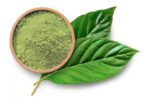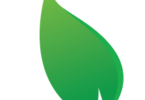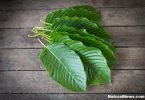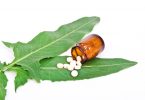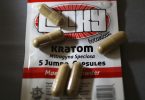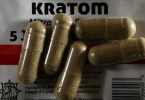Dubai: As many as five designer drugs and three psychotropic plants have been added to the list of drugs prohibited in the UAE as part of its federal bylaw, the Ministry of Health revealed on Saturday.
According to Dr Ameen Hussain Al Amiri, Assistant Undersecretary for Medical Practice and Licensing at the ministry, the substances were added to the list a month ago and will be placed before the UAE Cabinet for approval.
The five designer drugs included in the list of prohibited drugs are synthetic cannabinoids, synthetic cathinones, phenethylamine, piperazine and tryptamine. Synthetic cannabinoids, which refer to drugs that mimic the effects of marijuana by chemical sprays on to a herbal base material, have been added as a Schedule I drug. The drug is often marketed as herbal incense and sold online under many names such as Spice, K2 or Space. According to the ministry, 53 chemical varieties of synthetic cannabinoids are included in the list and are the most common worldwide.
Synthetic cathinones, commonly known as ‘bath salts’, has been added as a Schedule V drug. The drug is composed of synthetic chemicals related to cathinone, an amphetamine-like stimulant found naturally in the khat plant. The drug often resembles bath salts, available in powder, granule or crystal form. Like synthetic cannabinoids, they are labelled with a ‘not for human consumption’ disclaimer that attempts to circumvent the law. According to the ministry, 33 chemical varieties have been included to the list.
Phenethylamine has also been registered as a Schedule V drug in the UAE federal law. Accoiding to the ministry, 32 chemical varieties of phenethylamine, a drug which has amphetamine-like effects, have been registered in the list of prohibited drugs. Phenethylamine refers to an array of drugs that contain the chemical skeleton. It includes drugs under the 2C series (eg 2CI), the D series (eg DOI, DOC) and others.
Piperazine, which includes benzylpiperazine, a central nervous system stimulant, has been added as a Schedule V drug, with seven of its varieties.
Tryptamine, which is a hallucinogenic substance found in nature but also produced synthetically, has been included in the list of prohibited substances as a Schedule V drug. Natural tryptamine is found in many psychedelic substances including psilocybin mushrooms, typically known as ‘magic mushrooms’ and dimethyltryptamine, usually abbreviated to DMT.
The three psychoactive plants that have been added to the list are kratom, kava and salvia divinorum. Kratom is a tree found in some parts of Southeast Asia and has a long history in its use as a stimulant and narcotic. Kava, a drug made from the root or stump of a kava shrub, is known for its depressant qualities, slowing down the messages travelling between the body and the brain. It has been sold as powders, extracts, drops and capsules. Salvia divinorum, commonly referred to as salvia, is a psychoactive plant which induces hallucinations. All three plants have been added as a Schedule IV drug, while their active chemicals have been registered as Schedule V.
Higher committee meeting
The Higher Committee for Combating Drugs recently met to discuss the problem of pill misuse in the UAE. The meeting was held in the ministry’s laboratory of quality research at Dubiotech. The meeting was attended by delegates of local health institutions and the Ministry of Interior, including Dubai Police, Abu Dhabi Police, Sharjah Police, Ministry of Education, Dubai Courts, Public Prosecution and the National Rehabilitation Centre.
Dr Al Amiri, who chaired the meeting, said: “We discussed the problem of pill misuse in the country and are developing new strategies to quell the issue. We discussed it from legislative, chemical, political and procedural perspectives. We are always aiming to improve the safety and security standards of our country and the quality of our health services.”

